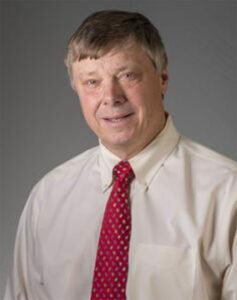By Deborah Jeanne Sergeant
The shortage of nurses to work in hospitals pre-existed the pandemic. However, the health crisis made the problem worse. The nursing shortage has affected independent practices similarly, but for different reasons.

“It’s been horrible since COVID-19 hit,” said physician David Page, with FamilyCare Medical Group in Camillus. “My office is not known for a lot of turnover, but we’ve lost two to three nurses and trying to replace them was extraordinarily difficult. We use LPNs and a limited number of RNs. It impacted operations and the workload of everyone else.”
His staff includes about 10 LPNs and RNs.
One of the issues is the rise in wages among nurses at larger organizations, including hospitals.
Page, who is past president of the Onondaga County Medical Society, said his office offers a competitive retirement plan and raised salaries two or three times to attract nurses. However, small organizations can only sustain so many raises and still remain within the budget.
What small offices like Page’s can do is provide better work-life balance than many large organizations can.
“Our office has historically had low turnover,” Page said. “We’re family-oriented. If you have a sick child, we can make arrangements to have internal coverage or if you have to take off early, we accommodate that. Some of our nurses have fairly fixed times they need to get out to take care of their children.
“It’s a friendly environment and we try to make people feel appreciated. I have a great nursing coordinator who takes good care of our nurses. Private practices should be a fun place for people to be. It’s less time demanding and a different type of working environment.”
That doesn’t mean that every independent practice hires nurses with ease.
Lisa Olson-Gugerty, who holds a master’s in public health and is an associate teaching professor at Syracuse University David B. Falk College of Sport and Human Dynamics, said that although many nurses prefer the better work-life balance at private practices compared with hospitals, private practices tend to pay less on average. “So it can be difficult to fill positions due to the lower pay rate. I think the nursing shortage is hitting all places of employment. The shortage is not necessarily due to lack of RNs available, but due to the storm of COVID-19, travel nurse positions, retirements and other opportunities for nurses.”
Some nurses have segued into case management, school nurse positions or, with additional education, academia, rather than office or bedside nursing.
Yvette Conyers, doctor of nursing practice, registered nurse and past president of the Rochester Black Nurses Association, said that many nurses have been pursuing additional education, such as a bachelor’s degree, making it challenging for some organizations to hire nurses at the entry level LPN education.
“It’s about using the nurses to their full education; they don’t want to hire BSNs and have them only on the phone triaging calls,” Conyers said. “That’s not what they’re prepared to do. They’re prepared to manage, look at a complicated picture, note the sociological determinants of health.”
Many large healthcare organizations reimburse or pay upfront for employees’ education, but with a stipulation that they work for them for six months to three years, depending upon the organization and the level of education. Although this brings many more nurses into the workforce, it also keeps them away from choosing small, independent practices and instead working in the larger healthcare systems, such as those operating larger hospitals and the freestanding offices owned by the same healthcare systems. The strategy is often successful in keeping nurses in the same organizations for years after they have fulfilled their obligation.
Conyers said that independent practices struggling to find nurses can improve their staffing by partnering with educational institutions. All students in nursing programs are required to complete a number of supervised clinical hours before sitting for their LPN and RN board examinations.
“This would help address the shortage of providers and open up the eyes of the students who are usually working in hospitals to the vast areas in out patient settings,” Conyers said.
Many students choose hospitals because of the availability of slots for clinical hours, the skillset and the fast-paced environment. But Conyers said that 80% of healthcare occurs outside of the hospital, making that a more needful place to focus on healthcare.
“Working in primary care and in the community is important and these are great areas to work,” she said.
She wants to see more nursing programs promote primary care and public health in nursing education.

